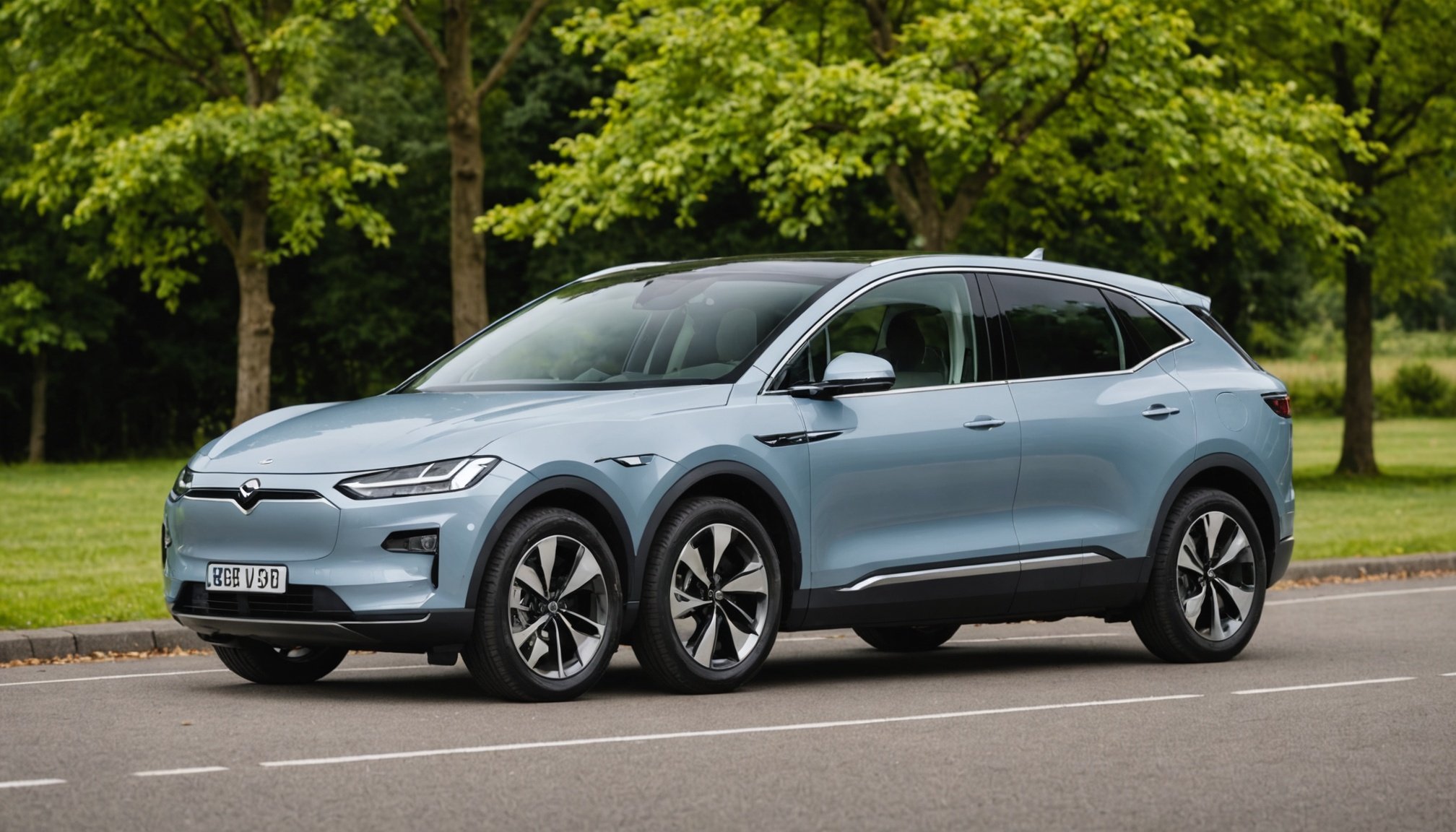Understanding Extended Warranties for Electric Vehicles
Extended warranties for electric vehicles (EVs) provide coverage beyond the standard manufacturer’s warranty. These warranties are crucial as they cover specific components susceptible to malfunction over time. Standard warranties typically cover defects in materials or workmanship, whereas extended warranties offer additional protection once the initial warranty period expires.
For EV owners, understanding the differences between standard and extended warranties is essential. Standard warranties often focus on basic coverage, which may not be sufficient for the sophisticated technology in electric vehicles. Extended warranties, however, specifically target critical EV components like the battery, electric motor, and charging systems, which can be costly to repair or replace.
Additional reading : Maximize fuel efficiency this winter: essential driving tips for hybrid car owners in the uk
The importance of such coverage cannot be overstated, given the advanced technology integrated into modern EVs. Electric vehicle components, such as batteries, can be significantly more expensive than parts in traditional internal combustion engine vehicles. Therefore, having an extended warranty ensures peace of mind and financial stability, protecting owners from unexpected repair costs.
In essence, securing an extended warranty for an EV is a wise investment. By safeguarding these advanced components, it offers protection and reassurance, helping maintain the vehicle’s functionality and owner’s satisfaction over time.
This might interest you : Essential Steps to Register Your Custom Motorcycle in the UK: A Complete Guide
Benefits of Extended Warranties for Electric Vehicles
Extended warranties for electric vehicles provide several crucial benefits to owners, chiefly offering financial security. The advanced nature of EV technology means repair costs can escalate quickly. In this context, an extended warranty acts as a protective cushion against unexpected expenses. Repairing high-tech components like batteries or electric motors, which are often expensive, becomes manageable due to this coverage.
Another significant advantage is peace of mind. Knowing that your vehicle’s key components are covered allays concerns about costly repairs. This is particularly important for owners who rely on their vehicles for everyday use, as it reduces the stress of potential breakdowns and repair needs.
Additionally, having an extended warranty can enhance your vehicle’s resale value. Prospective buyers are more inclined to purchase an EV that comes with added protection, as it suggests ongoing maintenance and care. This not only facilitates faster transactions but also often results in a better resale price. Ultimately, extended warranties serve as a sound investment, ensuring the longevity and reliability of electric vehicles while providing substantial financial and psychological benefits to their owners.
Key Features to Look for in an EV Extended Warranty
When considering an extended warranty for your electric vehicle (EV), understanding the specific features offered is crucial. One of the primary aspects is the difference between comprehensive coverage and powertrain-only coverage. Comprehensive coverage often includes more extensive protection, covering crucial electric components beyond just the powertrain, such as battery and electronic systems. This is especially beneficial given the sophisticated nature of EV components.
It’s also important to be aware of exclusions and limitations within a warranty policy. Many extended warranties have specific clauses that may exclude wear and tear or certain component failures. Understanding these can prevent future disputes and ensure you know exactly what is covered.
Flexibility in terms and conditions is another essential feature. This might include options for renewal and transferability to new owners, thus enhancing your vehicle’s resale value. A flexible warranty can cater to individual needs and evolving circumstances, making it a practical choice. Always review the policy document to ensure it aligns with your expectations and vehicle requirements, thus maximizing the benefits of your investment.
Comparing Extended Warranty Providers in the UK
When selecting an extended warranty for your electric vehicle in the UK, comparing warranty providers is essential to finding the best fit. Established warranty providers, like Warrantywise and MotorEasy, have built reputations for quality and reliable customer service, which are pivotal factors. They often offer comprehensive electric vehicle coverage, ensuring that core components such as batteries and charging systems are well-protected.
Newcomers in the market can offer competitive pricing and innovative terms but may lack the proven track record of more established companies. It’s crucial to weigh the pros and cons of reliability against potential savings when choosing a warranty provider.
Key criteria for comparison include the provider’s reputation, specific EV coverage offerings, and the flexibility of the policy terms. Furthermore, transparent pricing structures are vital. Providers typically offer various payment options, from one-time payments to monthly instalments, which can significantly impact your overall costs.
Consumer reviews can provide invaluable insights into real-life experiences, highlighting potential concerns and praises. Understanding the nuances between different providers will enable you to make an informed decision, securing your EV’s longevity and functional reliability.
Understanding Warranty Terms and Conditions
When engaging with warranty terms for electric vehicles, grasping common concepts and definitions is paramount. Familiar terms include deductibles, policy limits, and claim submission procedures. Your deductible amount, typically a small fee, impacts your out-of-pocket expense and varies across warranty plans. Recognising these terms aids in predicting potential costs and evaluating coverage effectiveness.
Reading the fine print of a warranty contract is crucial. Often, details such as repair procedure requirements or geographical limitations can affect coverage. For instance, warranties might mandate repairs be done at authorised service centres. Overlooking these details may risk warranty nullification, emphasising the necessity of thorough review.
Understanding deductibles and the claim process ensures smoother interactions with warranty providers. A clear grasp of the process helps avoid delays in service or disputes about reimbursement. Common claims procedures might require detailed documentation of service history and part malfunctions, underlining the value of keeping meticulous records.
Knowing these terms and conditions enables EV owners to utilise their warranties fully. By staying informed, individuals can adeptly manage repairs, maximising the protection an extended warranty offers. This insight ultimately empowers owners to navigate potential repairs confidently.
Consumer Reviews and Experiences
In the landscape of extended warranties for electric vehicles, consumer feedback serves as a valuable resource for potential buyers. Reviews often spotlight recurring praises and complaints, offering insights into the reliability and efficacy of different warranty options. Most consumers commend providers with robust warranty reviews on their responsiveness and comprehensive coverage, highlighting the importance of good customer service.
Common complaints, however, tend to arise around issues like slow claim processing and unclear policy terms. These real-life experiences underscore the necessity for clear communication and transparency from warranty providers. By examining these real-life experiences, potential buyers can anticipate possible challenges and mitigate them by choosing providers with well-documented reputations for consistency and reliability.
Lessons gleaned from actual warranty claims reveal that understanding the terms and conditions, thorough documentation, and proactive inquiries are critical in maximising the benefits of an extended warranty. Consumers often find that the most favourable experiences come from engaging with established providers who have proven track records, reinforcing the value of consumer reviews as a guiding instrument in the decision-making process.
Common Mistakes to Avoid When Selecting an Extended Warranty
Selecting an extended warranty for your electric vehicle (EV) requires careful consideration to sidestep common pitfalls. It’s crucial not to overlook exclusions and limitations within a policy. Many policies may exclude regular wear and tear or specific components, leading to unexpected out-of-pocket expenses. Understanding these exclusions ensures you select a plan that aligns with your needs.
Failing to compare multiple warranty options is another frequent oversight. Exploring a range of options, providers, and coverage details enables more informed decisions. Each provider may offer varying terms and benefits. Compare comparative pricing, coverage breadth, and consumer reviews to avoid costly errors in choice.
Ignoring your EV’s specific needs and manufacturer recommendations can also lead to unsuitable coverage. Different EV models possess unique technological configurations and support requirements. Aligning warranty features with your vehicle’s specific technology ensures comprehensive protection against repair costs. Always consult manufacturer guidelines for compatibility and ensure warranty coverage complements your vehicle’s inherent complexity.
By avoiding these common mistakes, you enhance your ability to secure optimal protection. This proactive approach not only shields you from potential financial pitfalls but also maximizes the peace of mind your extended warranty can offer.
Tips for Ensuring Comprehensive Coverage
Ensuring comprehensive coverage in your electric vehicle (EV) warranty is crucial for maximizing benefits and minimizing potential repair costs. Understanding the importance of regular vehicle maintenance cannot be understated, as it helps prevent issues that might void warranty coverage. Always adhere to the manufacturer’s maintenance schedule and keep detailed records of all service actions.
Familiarity with the claims process is vital to avoid delays. Immediately document any issues, including service history, and submit claims promptly. This proactive approach ensures smooth claim processing and decreases the risk of disputes with the warranty provider.
Reviewing your warranty’s coverage in relation to your EV’s age and mileage is essential. As your vehicle ages, its needs change, possibly necessitating updates or extensions in coverage. Regular assessments help align the warranty with your vehicle’s evolving requirements.
Finally, consistency is key: regular checks of your warranty policy ensure it remains relevant. Whether it’s understanding deductible amounts or ensuring repair shop compliance, these best practices empower EV owners to effectively utilize their warranties, thus providing confidence and peace of mind in everyday vehicle use.











